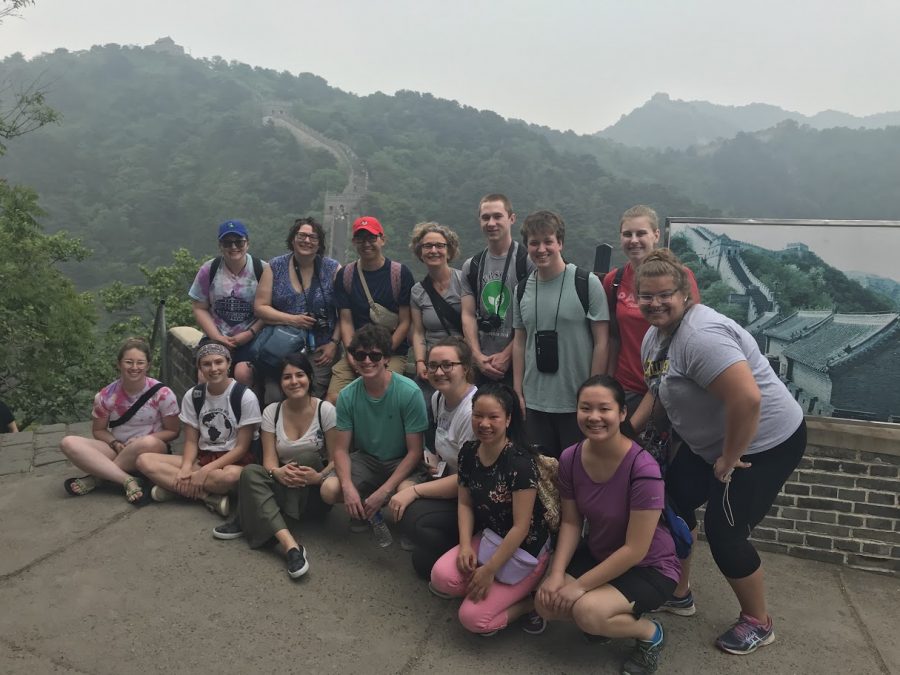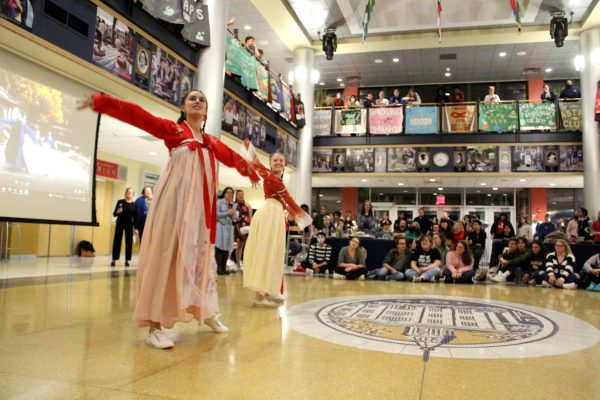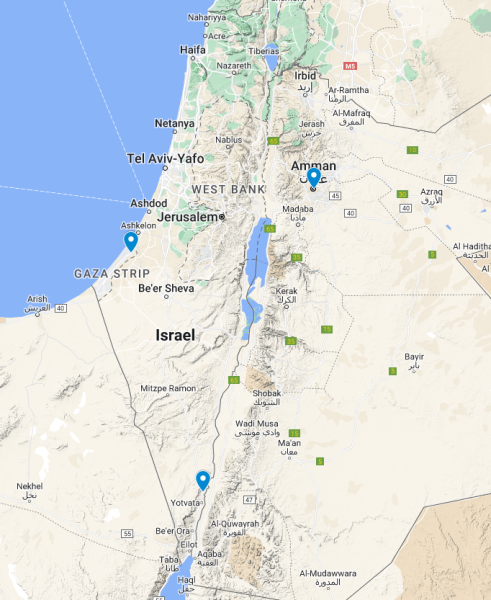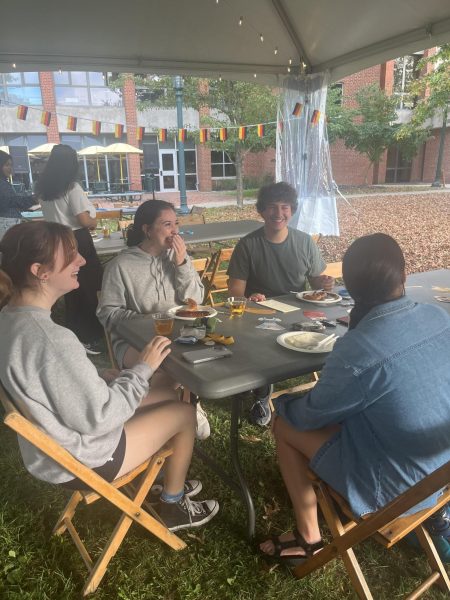A traveling academic experience: China
Students attending China EL examine development, contradictions
Attendees of the Experiential Learning Seminar to China during summer 2019 in front of the Great Wall of China.
Allegheny College offers the opportunity for students to travel around the world while also obtaining class credit. The Experiential Learning Seminars are a way for Gators to add to their travel resume.
The EL to China, led by Sharon Wesoky, professor of political science, and Shanna Kirschner, associate professor and chair of the political science department, brought students to rural and urban sites all around China this past summer.
The trip was intended to observe China’s development and look at how individuals respond to fast economic and social changes in their life.
“ELs are very different from a traditional class,” Kirschner said. “I think the beauty of experiential learning is that you don’t realize you’re doing work, but you’re actually learning a lot. It’s not just sitting in a classroom listening to a professor talk at you.”
The group traveled around East China to Beijing and Shanghai, as well as Chengdu, which is a more central area, with the goal of learning about the multiple narratives that are told about China’s development.
“We often get narratives from China that are one-directional,” Wesoky said. “We wanted the students to understand China from multiple points of view.”
Kirschner added that it was important for students to see rural and urban centers of China, “because if you’re only seeing urban centers, then you’re only seeing part of the picture.”
“An enormous part of the population lives outside of Beijing and Shanghai,” Kirschner said.
There was a precourse that brought all the students together to read and inform them about China before they left for the trip. Aside from the precourse, which every student took, most of the students had not studied China prior to attending the EL.
Katherine Zemaitis, ’21, and Raina Gorman, ’20, both political science majors, were two of the students who attended the trip.
“I decided to go on the trip because it seemed like a rare opportunity,” Gorman said. “I feel like I wouldn’t have had another reason to go to China without this trip.”
Zemaitis chose to attend the EL because of her major — the trip was politically focused.
“I study international politics, but to actually go and see the differences that I have been studying in Pittsburgh or Meadville was nice,” Zemaitis said.
Gorman described the trip as “lots of touring” and said that the days were really long. The group traveled to tourist attractions like the Great Wall of China and Tiananmen Square. Tour guides accompanied them to some of the destinations to help students understand certain happenings or facts about the site.
“The specific moments I enjoyed the most were ones I wasn’t necessarily looking forward to,” Zemaitis said. “The smaller moments were really what made it more impressionable.”
Gorman emphasized how nice it was to have the opportunity to talk to local people in the areas they were visiting.
“Professor Wesoky is fluent in Mandarin, and she has spent a lot of time in China,” Gorman said. “The professors went out of their way to make sure that we had the opportunity to talk to people who were actually from the area rather than just going out and seeing these famous sites.”
Kirschner described the academic work of the EL as “pretty traditional.” The students wrote research papers that combined their own interests with what they learned on the trip. The papers were intended to be reflections of the travel experience — reflections students could bring back to the United States.
Both students and professors felt the trip was successful and that their takeaways could be applied back home and in the classroom. Wesoky and Kirschner said the students were very thoughtful and that they did an impressive job combining the on-ground travel experience with the research they had them do on the trip.
“I wouldn’t say that I learned more (during the EL), but what I learned in the classroom, I’m able to apply when I’m (on the EL),” said Zemaitis when relating a stereotypical class to the EL experience. “I think (the classroom experience and EL experience) complement each other. It’s cool to go to places and observe other cultures, relate it to your own (culture) and be able to compare and think critically about it.”
Kirschner and Wesoky suggested that all students consider participating in an EL.
“I think that you get a much richer travel experience than you would otherwise, and you get a much richer academic experience,” Kirschner said. “We met people that you probably wouldn’t meet otherwise. You get to go to places you would never go as an ordinary tourist, because you don’t have those connections.”









